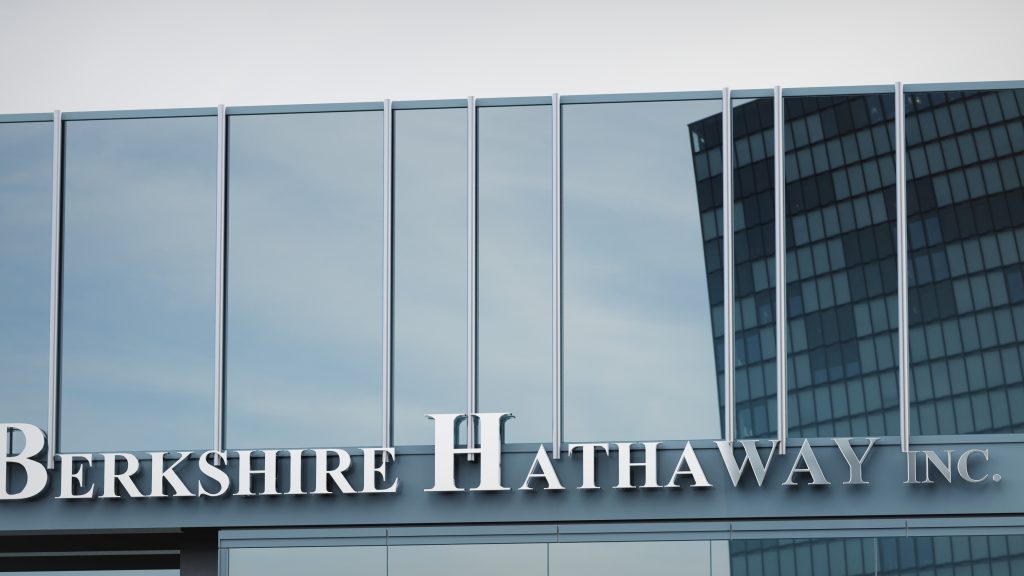Nelson Capital Management


In February, we added Berkshire Hathaway (“Berkshire”) to our portfolio by purchasing Class B (tkr: BRK.B) shares. Berkshire is led by its legendary CEO and Chairman Warren Buffett. The multinational company is structured as a holding company with both 1) wholly owned or controlled subsidiaries, and 2) investments — businesses for which the company does not have a controlling interest.
 Wholly owned or controlled subsidiaries represent roughly 83% of Berkshire’s revenue. These subsidiaries span a wide range of industries including insurance, manufacturing, utilities, energy, consumer goods, and railroads. We believe that these industries should perform relatively well in any economic environment. For example, since insurance is an essential expense for most businesses and individuals, customers typically pay their premiums, even in periods of financial stress. Also, energy generation is the lifeblood of any modern economy, as is the manufacturing and distribution of industrial, building and consumer products. As one of the world’s best value investors, Warren Buffett has amassed what many believe to be stable all-weather businesses that have a moat (sustainable competitive advantage). While Mr. Buffett and his management team provide overall guidance to the subsidiaries, each subsidiary operates with a high degree of autonomy, allowing them to operate efficiently.
Wholly owned or controlled subsidiaries represent roughly 83% of Berkshire’s revenue. These subsidiaries span a wide range of industries including insurance, manufacturing, utilities, energy, consumer goods, and railroads. We believe that these industries should perform relatively well in any economic environment. For example, since insurance is an essential expense for most businesses and individuals, customers typically pay their premiums, even in periods of financial stress. Also, energy generation is the lifeblood of any modern economy, as is the manufacturing and distribution of industrial, building and consumer products. As one of the world’s best value investors, Warren Buffett has amassed what many believe to be stable all-weather businesses that have a moat (sustainable competitive advantage). While Mr. Buffett and his management team provide overall guidance to the subsidiaries, each subsidiary operates with a high degree of autonomy, allowing them to operate efficiently.
In addition to wholly owned businesses, Berkshire also invests in over 35 publicly traded US and non-US companies for which it does not have a controlling interest. Its top holdings include well-known names such as Apple Inc, American Express, Coca-Cola, Bank of America, Chevron and Moody’s. Berkshire’s strategy is to invest in businesses that not only have a moat, but also have strong management, predictable earnings, and consistent cash flow. The company is also known for holding these investments long-term, for example, Berkshire bought a stake in Coca-Cola in 1988 and has not sold a single share.
Warren Buffett, who has led Berkshire for the last 60 years, announced on May 3, 2025, that he will step down as CEO at the end of this year. He will be succeeded by Greg Abel, who has been a Vice Chairman at Berkshire since 2018. Todd Combs and Ted Weschler, hired in 2010 and 2012 respectively, will continue to manage Berkshire’s stock portfolio, continuing Buffett’s conservative strategy. Mr. Buffett’s succession plan has been widely communicated since 2021 and broadly accepted by shareholders. There is also the question of Mr. Buffett’s equity stake in Berkshire. Upon his death, his 15% equity stake in the company will go to the foundations of his three children. The children have been instructed to gradually dispose of the shares.
At the end of the first quarter, Berkshire’s cash and short-term investments exceeded $332 billion. Although the record size of this cash position has drawn criticism from some investors, the cash provides the company with the capital for new investments, stock buybacks, and for weathering economic downturns. Given Berkshire’s low valuation, strong margins, and portfolio of robust all-weather companies, we believe an allocation was warranted, especially given the volatility and uncertainty in the overall market.
The opinions expressed in this post are for general informational purposes only and are not intended to provide specific advice or recommendations for any individual. It is only intended to provide education about the financial industry. Individual investment positions discussed should not be construed as a recommendation to purchase or sell the security. Past performance is not necessarily a guide to future performance. Please remember that investing involves risk of loss of principal and capital. Nelson Capital Management, LLC is a registered investment adviser with the U.S. Securities and Exchange Commission. No advice may be rendered by Nelson Capital Management, LLC unless a client service agreement is in place. Likes and dislikes are not considered an endorsement for our firm.
Receive our next post in your inbox.